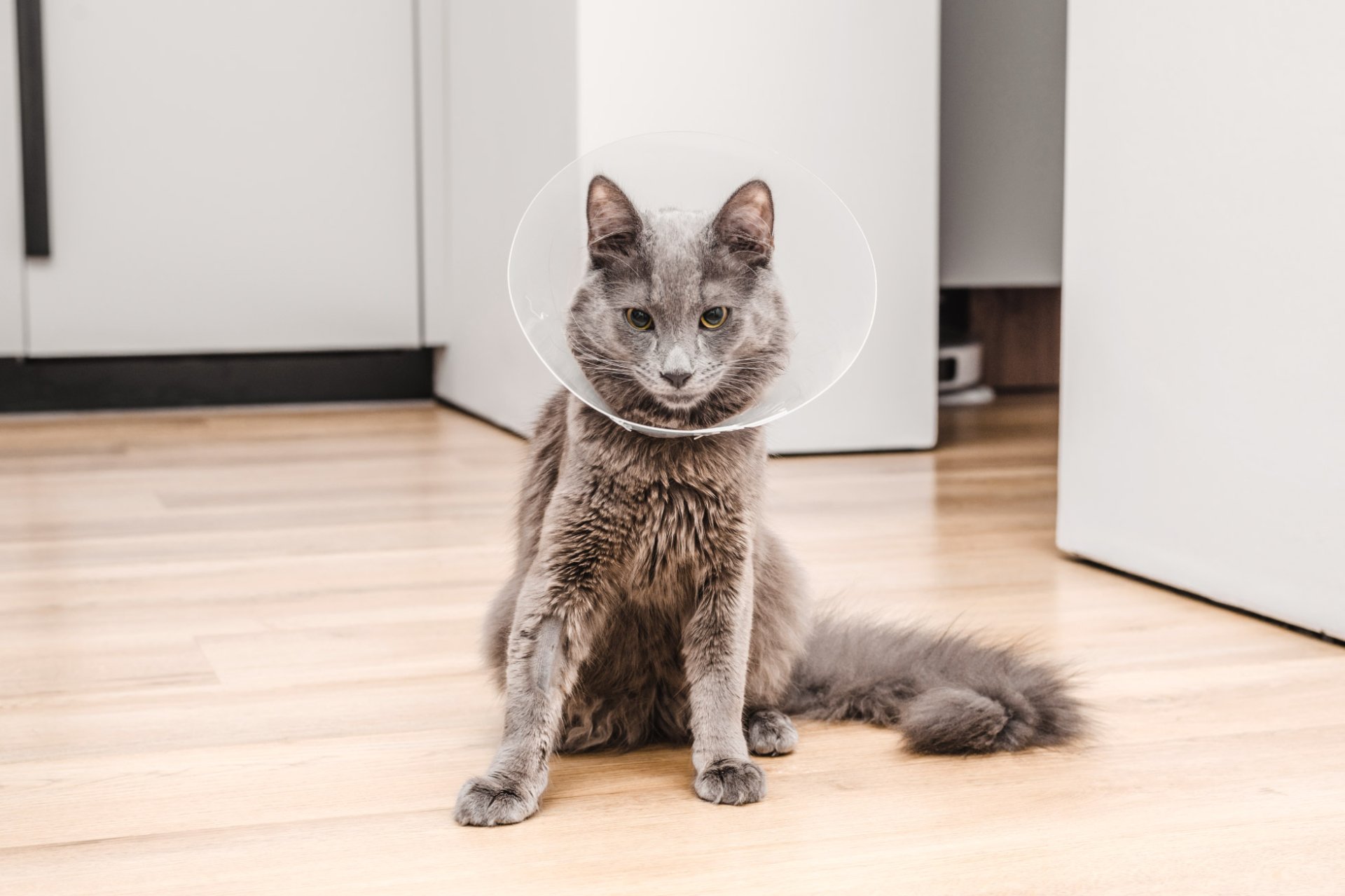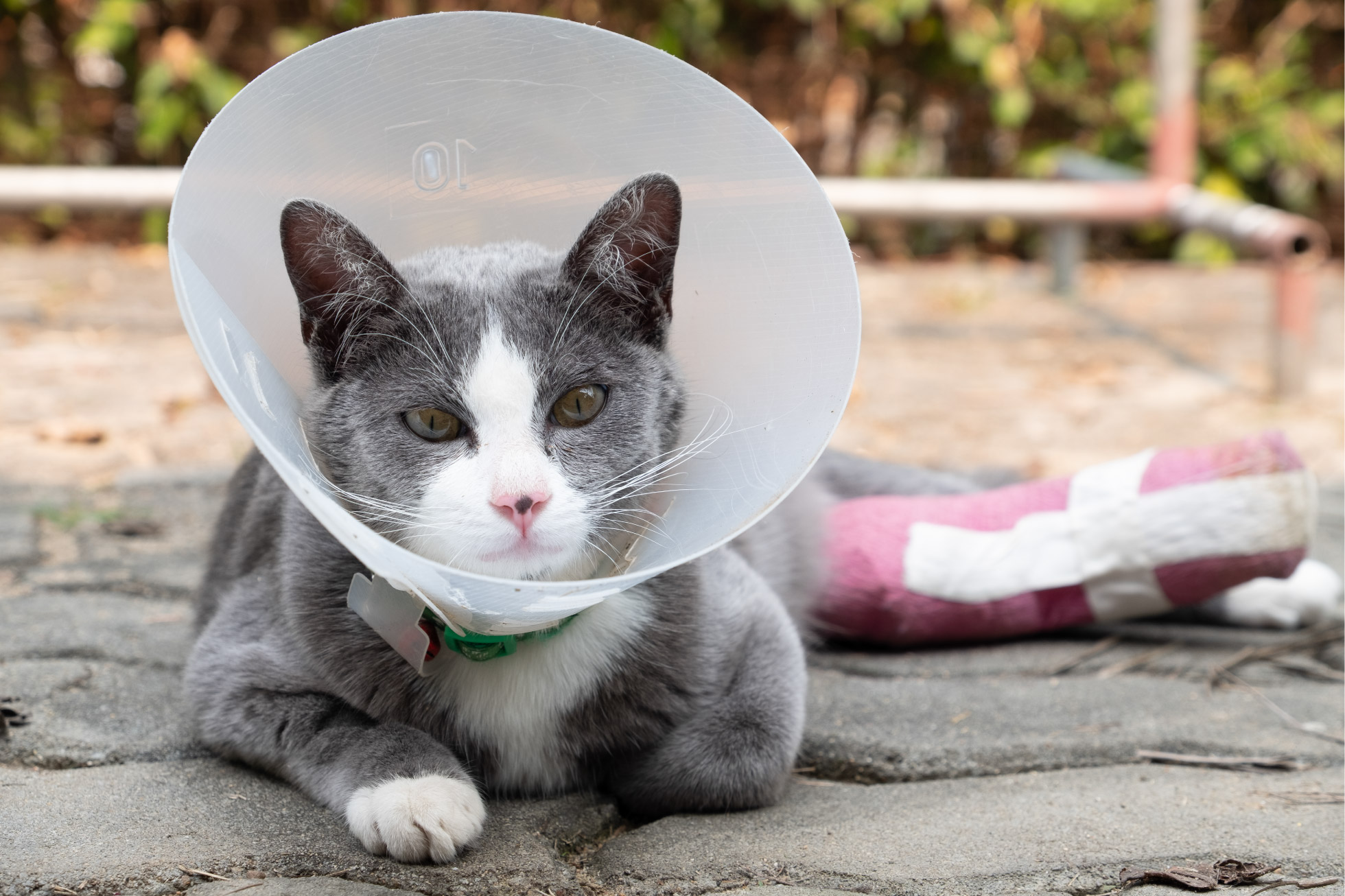Dog and Cat Diseases 2025: Proactive Health Planning & PetGeneX for Long Life

As a marketing specialist and market analyst specializing in anti-aging and cellular-level rejuvenation for pets, I understand that every pet owner wants their four-legged friends to be in the best possible health. Proactive preparation and prevention are therefore crucial, especially when we look at the trends of various diseases that may emerge in 2025.
This article will delve into the common diseases in dogs and cats in 2025, emphasizing what owners should start planning for today to ensure their beloved pets have a long and high-quality life. We will cover understanding the diseases, prevention, and the role of modern medical technology, particularly how
PetGeneX services can help care for your pet's health at a cellular level.
Why is Proactive Pet Health Planning Important in 2025?
Medical science and technology are advancing by leaps and bounds. This impacts not only human health but also that of our pets. In 2025, the trends of certain diseases may change due to environmental, behavioral, and genetic factors. By having knowledge and a proactive plan, we can:
- Reduce risk: Prevention is always better than cure. Knowing the trends of potential diseases helps us prepare and reduce risks.
- Early detection: If a pet gets sick, detecting it in the early stages increases the chances of a full recovery and reduces the severity of the disease.
- Reduce costs: Preventive care is often less expensive than treating a disease that has become severe.
- Enhance quality of life: A healthy pet is a happy pet, full of energy and able to live life to the fullest.

Common Dog Diseases in 2025 That Owners Should Know and How to Manage Them
In 2025, it is expected that diseases caused by viruses, bacteria, parasites, and non-communicable diseases like obesity and osteoarthritis will remain major problems for dogs. However, there may be a trend of increased severity or drug-resistant strains.
1. Canine Distemper
Although there is a vaccine, canine distemper remains a serious epidemic that claims the lives of many puppies and can be found in adult dogs that are not vaccinated or have not completed their vaccination schedule.
Symptoms: Starts with a high fever, lethargy, loss of appetite, vomiting, diarrhea, coughing, and thick nasal and eye discharge. Severe cases can affect the nervous system, leading to seizures, muscle rigidity, and spasms.
Prevention: The distemper vaccine is the most essential step. It should be started in puppies and boosted as scheduled, along with maintaining good hygiene in their living environment.
What to plan today: Check your dog's vaccination schedule to ensure it is complete and up-to-date. If you haven't done so, take your dog to a veterinarian to plan a vaccination program immediately.
2. Canine Parvovirus
A highly contagious and life-threatening disease, especially in puppies.
Symptoms: Severe vomiting, watery and foul-smelling diarrhea (which may contain blood), lethargy, loss of appetite, and severe dehydration.
Prevention: The parvovirus vaccine is another core vaccine that must be completed. It also involves isolating sick animals and thoroughly cleaning and disinfecting the area where they were.
What to plan today: Similar to distemper, completing the vaccination program recommended by your veterinarian is the most crucial step.
3. Rabies
A zoonotic disease (transmissible from animals to humans) that is 100% fatal if not treated early.
Symptoms: Rapid behavioral changes, aggression, excessive salivation, a dropped tail, staggering, paralysis, and eventual death.
Prevention: The rabies vaccine is a legally mandated and essential vaccine for both pets and humans.
What to plan today: Ensure your dog receives the rabies vaccine regularly every year and avoid letting your dog come into contact with wild animals or other pets with an unknown history.
4. Leptospirosis
A bacterial disease found in water or soil contaminated with the urine of infected animals, such as rats, dogs, and cats. It can also be transmitted to humans.
Symptoms: Fever, lethargy, loss of appetite, vomiting, jaundice (yellowing of the eyes and skin), acute kidney failure, and possible abnormal bleeding.
Prevention: The leptospirosis vaccine is important, especially in high-risk areas or for dogs that like to play in water or near stagnant water sources.
What to plan today: If your dog is at risk, consult a veterinarian about the leptospirosis vaccine and prevent your dog from coming into contact with potentially contaminated water sources.
5. Osteoarthritis
A chronic disease common in senior or large-breed dogs, significantly affecting their quality of life.
Symptoms: Difficulty walking, trouble getting up, joint pain, joint stiffness, and limited range of motion.
Prevention: Maintain an appropriate weight, provide suitable exercise without overexertion, and give joint supplements (like glucosamine and chondroitin) from a young age.
What to plan today: Regularly observe your dog for signs of joint pain. If you notice any abnormalities, consult a veterinarian for early diagnosis and treatment planning.

Common Cat Diseases in 2025 That Owners Should Know and How to Manage Them
Cats are also susceptible to various diseases, especially viral diseases that can be severe and chronic.
1. Feline Leukemia Virus (FeLV)
A severe viral disease that destroys the cat's immune system, making it weak and susceptible to other infections or leading to feline leukemia.
Symptoms: Lethargy, loss of appetite, weight loss, anemia, chronic fever, diarrhea, enlarged lymph nodes, and possibly tumors.
Prevention: The FeLV vaccine is essential for kittens or cats that go outdoors and may come into contact with other cats. Blood tests for the virus should also be done before bringing a new cat into the home.
What to plan today: Check your cat's FeLV status and consult a veterinarian about vaccination, especially if you have an outdoor cat or multiple cats.
2. Feline Immunodeficiency Virus (FIV) or Feline AIDS
A viral disease that destroys the cat's immune system, making it susceptible to other infections, similar to AIDS in humans.
Symptoms: Lethargy, weight loss, loss of appetite, chronic fever, gingivitis, chronic stomatitis, and easy susceptibility to secondary infections.
Prevention: There is no 100% effective vaccine. The best prevention is to prevent your cat from coming into contact with infected cats, especially through fights. Cats should be kept indoors, and blood tests for the virus should be done before introducing a new cat.
What to plan today: Check your cat's FIV status and manage their living environment to prevent contact with other cats with an unknown history.
3. Feline Infectious Peritonitis (FIP)
A severe and often fatal viral disease caused by a mutated feline coronavirus.
Symptoms: Can present in various forms, including wet FIP (fluid in the abdomen or chest, leading to a swollen belly or difficulty breathing) and dry FIP (fever, lethargy, loss of appetite, weight loss, eye inflammation, and nervous system disorders).
Prevention: There is no highly effective and widely used vaccine. Prevention focuses on controlling hygiene in the living environment, reducing stress, and isolating sick cats.
What to plan today: Regularly observe your cat for abnormal symptoms. If you suspect anything, take them to a veterinarian for early diagnosis and management.
4. Feline Lower Urinary Tract Disease (FLUTD)
A group of conditions affecting the bladder and urethra in cats, causing pain, difficulty urinating, or inability to urinate.
Symptoms: Urinating outside the litter box, frequent urination, blood in the urine, crying while urinating, and frequent licking of the genitals. Inability to urinate can lead to lethargy, loss of appetite, vomiting, and can be fatal.
Prevention: Encourage your cat to drink plenty of water, provide an appropriate diet (food for urinary tract health), keep the litter box clean and accessible, and reduce stress.
What to plan today: Closely observe your cat's urination habits and provide a suitable environment. If you notice any abnormal symptoms, consult a veterinarian immediately.
5. Feline Diabetes Mellitus
Symptoms: Excessive thirst and urination, weight loss despite eating well, lethargy, and fatigue.
Prevention: Control your cat's weight to a healthy standard and provide a high-quality, age-appropriate diet.
What to plan today: Regularly monitor your cat's weight. If you notice any suspicious symptoms, take them for a blood test for diagnosis and treatment.
Proactive Health Planning Strategies for Pets in 2025
To deal with the trends of various diseases and promote the best health for your pet, you should start planning and implementing these strategies today:
1. Regular Annual Health Check-ups
This is the cornerstone of proactive health care. It's not just about vaccinations but includes a thorough physical examination, blood tests, urine tests, and stool tests to screen for any abnormalities that may not yet show clear symptoms.
2. Complete and Up-to-date Vaccination Program
Consult with a veterinarian to plan a vaccination schedule suitable for your pet's breed, age, environment, and lifestyle. Ensure they receive all core vaccines and consider other optional vaccines as appropriate.
3. Internal and External Parasite Control
Fleas, ticks, heartworms, and intestinal worms are not just a nuisance but also carriers of dangerous diseases. You should regularly give your pet parasite prevention medication as recommended by your veterinarian, whether it's an oral medication, a topical solution, or a collar.
4. Appropriate and High-Quality Nutrition
Diet plays a crucial role in a pet's health. Choosing food with complete nutrients, suitable for their age, breed, and health condition, will help build their immune system and reduce the risk of various diseases. Consult a veterinarian or a pet nutritionist to choose the best food.
5. Suitable Exercise and Weight Management
Obesity is the source of many chronic diseases, such as diabetes, osteoarthritis, and heart disease. Regular exercise and maintaining a healthy weight will help extend your pet's life and improve their quality of life.
6. Oral and Dental Hygiene
Periodontal disease and tartar are common problems in pets and can lead to other serious health issues, such as heart and kidney disease. You should brush your pet's teeth regularly or consider professional dental cleaning by a veterinarian.
7. Stress Management and a Suitable Environment
Stress can impact a pet's immune system, making them more prone to illness. Providing a safe, clean environment with space for movement and appropriate activities will help reduce stress and promote good mental health.
PetGeneX: A New Dimension in Cellular-Level Pet Healthcare
In an era of relentless advancement in medical technology, PetGeneX offers a new concept in deep, cellular-level pet healthcare, which is the heart of anti-aging and health rejuvenation medicine. Understanding and managing health issues at a cellular level will help your pet live a longer, higher-quality life.
What is PetGeneX?
PetGeneX is a service focused on analyzing and understanding your pet's health at a genetic and cellular level. With advanced technology, we can:
- Analyze genetic risks for diseases: We can detect the early tendencies for your pet to develop certain genetic diseases, such as some types of heart, kidney disease, or cancer. With this information, you and your veterinarian can create a specific prevention or screening plan.
- Assess cellular health and rejuvenation potential: We can understand how well your pet's cells are functioning and whether there are signs of deterioration or damage. This helps us find ways to strengthen cell function and promote rejuvenation.
- Customize nutrition and supplement programs: By understanding specific needs at a genetic and cellular level, PetGeneX can provide recommendations for the most suitable food and supplements to promote good health and slow down aging.
- Plan proactive anti-aging medicine: With the in-depth data from PetGeneX, you can plan a holistic health care approach to slow down cellular deterioration, helping your pet have a better quality of life as they age.
- The Benefits of PetGeneX in Managing 2025's Diseases
Investing in PetGeneX services today can help you:
- Engage in truly proactive prevention: This is not just about treating symptoms but understanding the foundation of health to prevent diseases before they start.
- Increase chances of survival and quality of life: If a risk is detected early, preparation or medical intervention can be faster and more effective.
- Receive personalized care: Every pet is different. PetGeneX helps make health care more precise and suitable for your specific pet.
- Provide peace of mind for owners: Having in-depth information about your pet's health helps you make better decisions and reduces worry.
FAQ: Frequently Asked Questions about Future Pet Healthcare
| Q1: How often should I take my pet for a health check-up in 2025? A1: Generally, dogs and cats should have a health check-up at least once a year. However, for senior pets, those with chronic conditions, or those with high-risk factors, more frequent check-ups may be necessary as recommended by your veterinarian. |
| Q2: Are supplements necessary for all pets? A2: No, not for every pet. Supplements should be considered based on each pet's individual needs, such as joint supplements for large-breed dogs, supplements for coat health, or supplements for specific health conditions. Consulting a veterinarian before giving supplements is most important. |
| Q3: How can I know what genetic risks my pet has for certain diseases? A3: Services like PetGeneX can perform genetic analysis to assess the risk for certain diseases. Consulting with the service provider and a veterinarian will help you understand the results and plan an appropriate care strategy. |
| Q4: Does keeping a cat indoors prevent all diseases? A4: Keeping a cat indoors can significantly reduce the risk of many contagious diseases from the outside. However, they can still be at risk for certain conditions like urinary tract disease, obesity, or stress. They should also receive all core vaccines. |
| Q5: Is PetGeneX suitable for all pets? A5: PetGeneX is suitable for pets of all ages whose owners want to proactively plan for their health and understand in-depth health information at a cellular level. It is especially beneficial for young animals where early prevention planning is needed, or for senior pets that require a strategy to slow down aging. |
| Q6: If my pet contracts a serious infectious disease in 2025, will it still have a chance of recovery? A6: The chances of recovery depend on the type of disease, its severity, early detection and treatment, and the pet's overall health. Consulting a veterinarian for the fastest possible diagnosis and treatment plan is of utmost importance. |

Investing in Health Today is an Investment in Your Pet's Future
The year 2025 may bring new challenges for pet health, but with information, knowledge, and advanced technology like
PetGeneX, every pet owner can be prepared and handle various situations effectively.
Pet health care is not limited to treating illnesses but is a proactive approach that starts with prevention, planning, and leveraging medical innovations to ensure your beloved pet lives a long, healthy, and happy life with you.
Tell: 062-426-4145
Line: @petgenex
Website: www.petgenex-thailand.com


